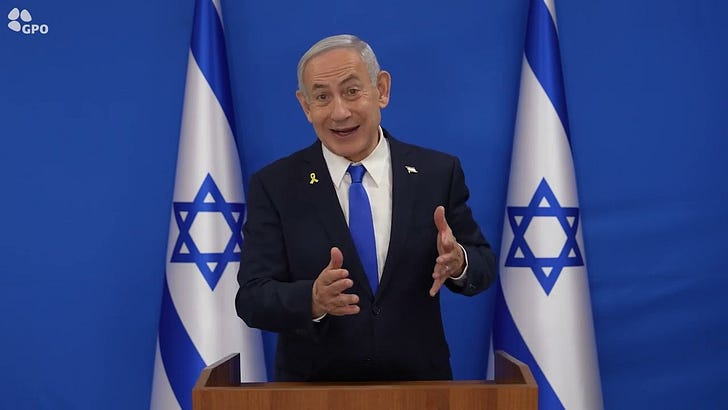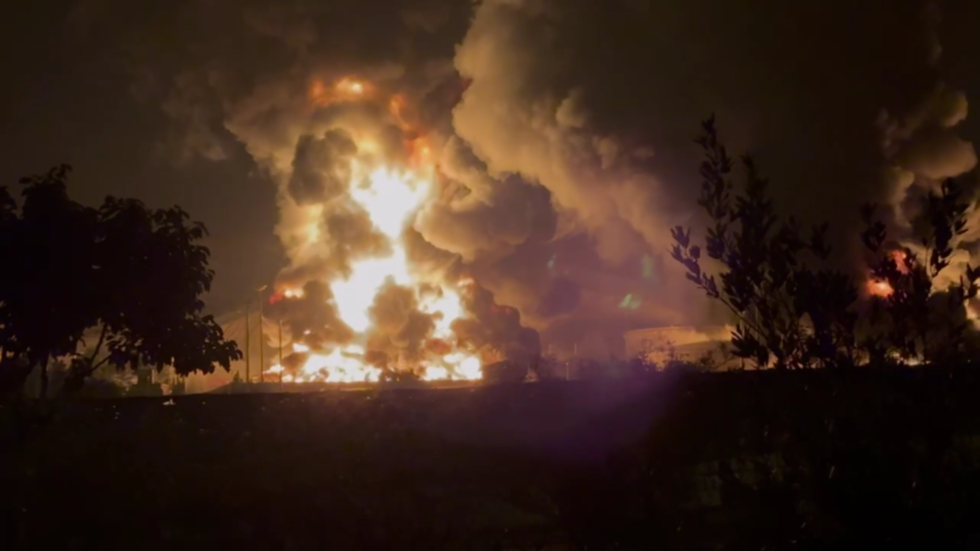Netanyahu States Goal of Toppling Iranian Regime

Last night marked a significant escalation in the Middle East conflict as Israel and Iran engaged in their most intense direct confrontation to date. A precise Israeli operation, executed by Mossad and the Israeli Air Force (IAF), targeted and obliterated key Iranian military commanders, including leaders from the IRGC, alongside critical ballistic missile sites and nuclear facilities. This audacious strike aimed to dismantle Iran's military infrastructure and nuclear ambitions.
Iran initially responded with a wave of drones, all of which were successfully intercepted. However, the situation quickly escalated when Iran launched over 200 ballistic missiles directly at civilian populations in Israel. Several missiles struck densely populated areas, including Tel Aviv, Ramat Gan, and Rishon Lezion, resulting in the deaths of three civilians and over 75 wounded. Unlike previous Iranian attacks that caused minimal damage, this barrage overwhelmed Israel's defense systems, partly due to reduced assistance from allies.
Israel's response has been described as unrelenting, with the IAF systematically targeting military objectives deep within Iranian territory for maximum destruction. This is not merely an isolated strike but the initial phase of a broader campaign designed to dismantle Iran’s nuclear program and long-range missile capabilities. Israeli assessments, as reported in their media, suggest that the attacks on Natanz and Isfahan have set back Tehran’s nuclear development by several years. However, Israel's objectives extend beyond purely military diminishment.
In a defiant address, Prime Minister Benjamin Netanyahu issued a direct appeal to the Iranian populace, urging them to overthrow their current regime. Having previously supported the liberation of Lebanon from Hezbollah and Syria from President Assad’s regime, Israel now harbors hopes of achieving similar outcomes in Iran, believing it will benefit Israel, the Iranian people, and contribute to greater regional stability. For Israel, this conflict is framed as an existential struggle, given repeated vows by Iranian leaders to annihilate the Jewish state and their pursuit of nuclear weapons to match their genocidal rhetoric. Years of Israeli covert operations, including sabotage and targeted killings, had previously delayed Iran's progress, but diplomatic efforts, including US-Iran talks, ultimately failed to halt their nuclear trajectory.
Former Mossad chief Meir Dagan's warning that Israel would act only with 'a sword upon its neck' appears to have materialized. Israel executed these strikes largely independently, though US President Donald Trump provided some defensive bolstering, and Jordan assisted in intercepting drones. Germany and France, despite reservations about Israel’s conduct in Gaza, have affirmed Israel’s right to self-defense. In contrast, the United Kingdom’s response has been perceived as tepid, with Prime Minister Keir Starmer and Foreign Secretary David Lammy's calls for de-escalation and 'stability' being criticized as hollow, especially as a nuclear Iran is seen to guarantee the opposite. Britain's hesitancy is perplexing, as restraining Tehran's oppressive regime aligns with the interests of any nation valuing peace.
Israel’s strategy is multifaceted, extending beyond mere destruction. By decapitating Iran's military command and targeting its nuclear infrastructure, Jerusalem aims to sow discord internally, potentially sparking a revolution to topple the theocracy. The inherent risks are immense, including the potential for escalated Iranian missile barrages leading to more casualties and destruction, and the possibility of prolonged conflict further isolating Israel, even beyond the impact of the war in Gaza. Iran now faces a critical decision: either continue its attacks on Israel, risking further devastating destruction, or be compelled to return to negotiations with President Trump from a position of profound weakness. Israel holds no faith in a nuclear deal, considering it a failed measure, and desires American participation in attacks against Iran’s fortified bunkers. It is imperative that the UK and its allies offer unwavering support to Israel's resolve, rather than mere platitudes, and ramp up security for Jewish communities worldwide, which are undoubtedly vulnerable to Iran-backed terrorist attacks. Preventing a nuclear Iran is not solely Israel's struggle; it is a global imperative to secure international peace.













